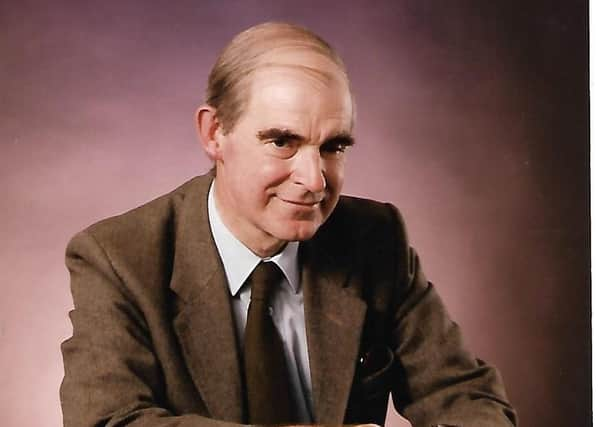Popular doctor was a man of many talents


Despite his years of service to the practice and to his community, he might not have gone into medicine at all; as a youth he spent much time on a hill farm in the Lammermuirs, where his parents had a summer cottage.
So enthusiastic and capable was he at helping the farmer that he was offered the 800-acre holding as a future legacy. He turned this down and entered Edinburgh University’s Arts Faculty to study languages, but after a year he decided to follow his father (a distinguished Edinburgh Ophthalmologist) and transferred to the Faculty of Medicine, qualifying there in 1964, following which he set about fulfilling his ambition to enter General Practice in the Borders.
Advertisement
Hide AdAdvertisement
Hide AdHe settled finally in Kelso, where he remained for the rest of his life, although a spell of ill-health, combined with dismay at the changes in health service conditions which he felt were not supportive of his concept of good patient care, caused him to take early retirement.
Retirement did not mean a drift into inactivity: he promptly enrolled in University again, back in the Languages Department, where he took up the study of Russian (and, for a while at least, Gaelic) carrying the former to degree level.
He was not one to rest on his laurels and shortly after completing that combined his love of the Border countryside, his deep interest in ornithology and his great talent for making conversation, arising out of a love of people, by producing a thesis on “Colloquial names for birds in South -East Scotland”, a work for which he received an M.Sc Magna cum Laude.
Throughout all this he maintained his skill as a musician. His instrument was the violin, but he later moved over to the viola and with that played regularly in the Borders Orchestra, while for a few years around the turn of the century he was also a member of the European Doctors’ Orchestra and travelled with it to many of the cities of continental Europe.
Advertisement
Hide AdAdvertisement
Hide AdHis travels around the (very large) practice catchment kept him close to the rural agricultural life and his extensive knowledge of sheep and sheep farming allowed him to converse on an equal footing with those whose livelihood came from it.
That interest also made him a familiar figure at local sheep sales, where he could keep up with the state of the market.
He kept up his activities in both music and walking the hills of his beloved Border country until age and advancing illness made both activities impossible.
He is survived by Isobel, his wife of 52 years, whom he met while working as a resident in Taunton Hospital.
They had three children and four grandchildren.
Any generation will have but few like him and those of us fortunate enough to know him are left the poorer for his loss, but richer than we can ever tell for having had his company.
KN
Comment Guidelines
National World encourages reader discussion on our stories. User feedback, insights and back-and-forth exchanges add a rich layer of context to reporting. Please review our Community Guidelines before commenting.